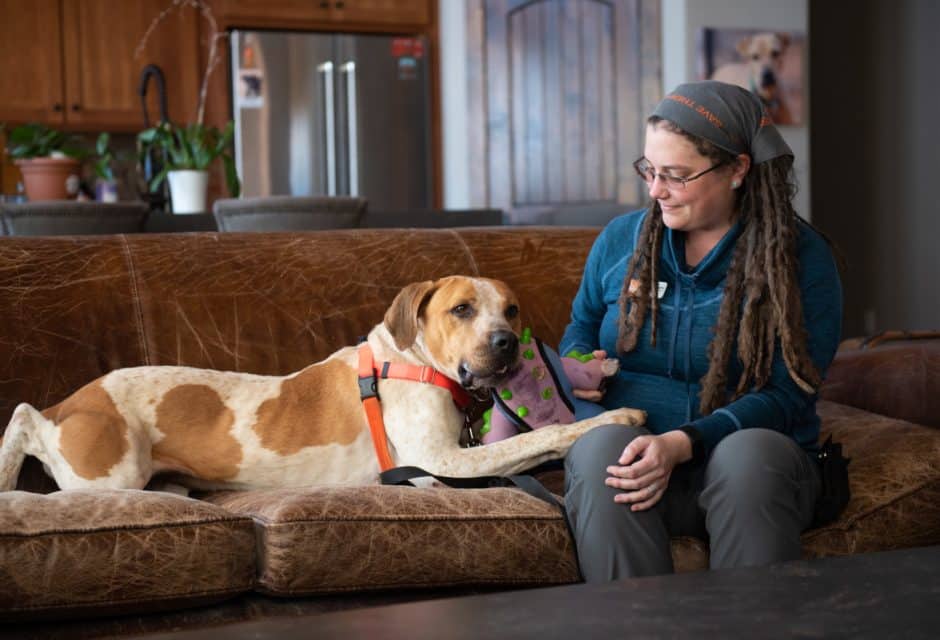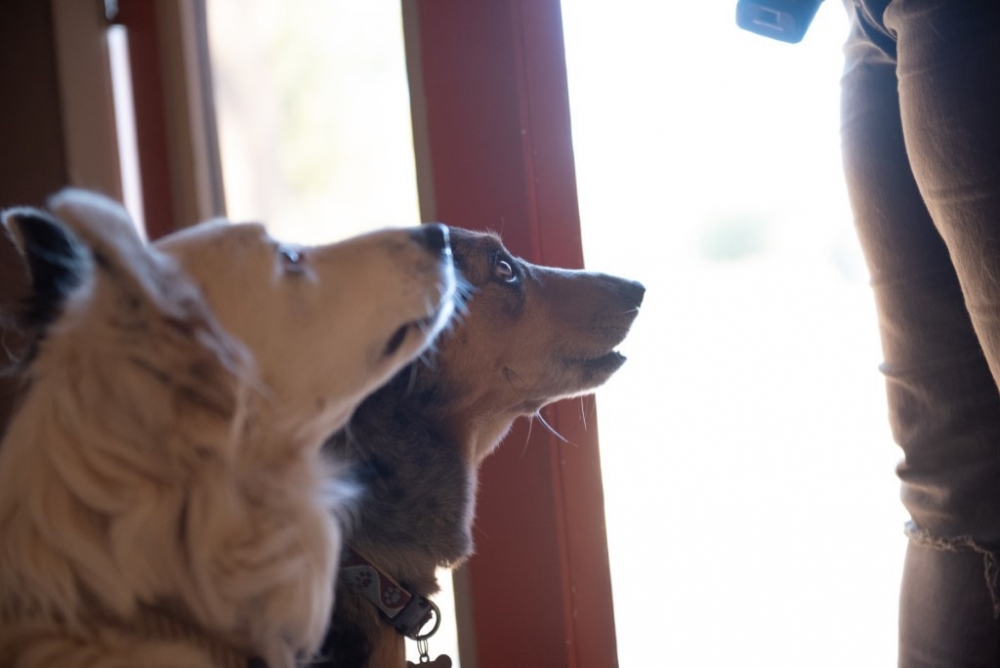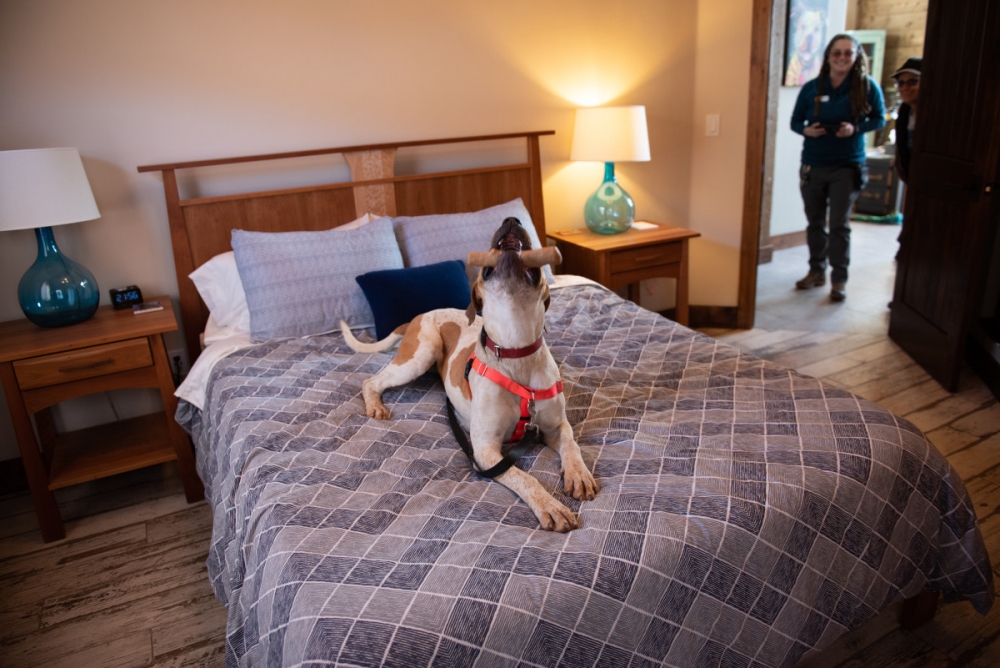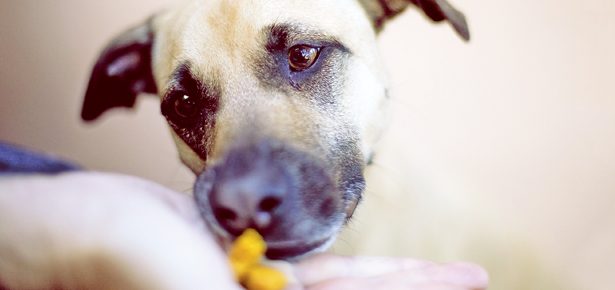

Experts Say Plan Now, Offer Tips to Prepare for Your Dog’s Potential Separation Anxiety
Planning now before you return to work or school from a COVID-19 hiatus can help deal with potential separation anxiety, according to behavior experts at Best Friends Animal Society.

For many Americans, one of the few silver linings of the COVID-19 crisis has been the bond it’s created with their pets.
With humans hunkered down at home over the last several weeks, the new normal has been almost 24/7 togetherness amongst family members, including those with four legs.
Whether the pet has been in the home for years or only recently, some might find that Fido or Fluffy won’t like it much when their owners go back to work or school and may show signs of separation anxiety or distress, such as:
- Barking, howling, or whining when you leave (not just in response to noises outside of the home), especially for longer than 30 seconds.
- Scratching or chewing at entrances and exits (doors/windows)
- Destructive behavior that only happens when the dog is alone
- Over-grooming or other self-harm or obsessive behaviors
- A change in appetite
Most pets don’t like sudden and abrupt changes. Instead, try starting now to get your pet ready and ease them back to your previously ‘normal’ routine more easily,” said Janelle Metiva, CPDT-KA and dog behavior specialist at Best Friends Animal Society in Los Angeles.
To get dogs prepared for alone time, Metiva suggests the following:
- Create a safe, comfortable place where they can have peaceful, relaxing alone time. This could be a crate or separate room, just make sure it’s the quietest part of the house.
- Provide them with enrichment that can be enjoyed independently, such as hidden treats in boxes, food puzzles, stuffed Kongs, etc.
- Play soothing music such as reggae, smooth jazz, or classical, or play the TV or radio to stations like the BBC or NPR while you’re gone to keep them from being startled by outside noises. You can also try a white noise machine.
- Reward your dog for calm, independent behavior (especially if they're usually clingy). We tend to pay attention to dogs only when they're active or even misbehaving. They should be rewarded for being calm and chill.
Practice leaving for short periods of time to run essential errands or go for a walk:
If your dog shows signs of panic, decrease the amount of time that you leave, even if for just a few seconds.
If your dog barks or paws at the door when you leave, come back only when they're quiet.
If your dog has trouble being alone for even brief periods of time – consult a Certified Separation Anxiety Trainer (CSAT) who usually due virtual consultations.
You might want to learn about CBD for dogs to help your dog cope.
Join the newsletter and never miss out on dog content again!
"*" indicates required fields
By clicking the arrow, you agree to our web Terms of Use and Privacy & Cookie Policy. Easy unsubscribe links are provided in every email.






